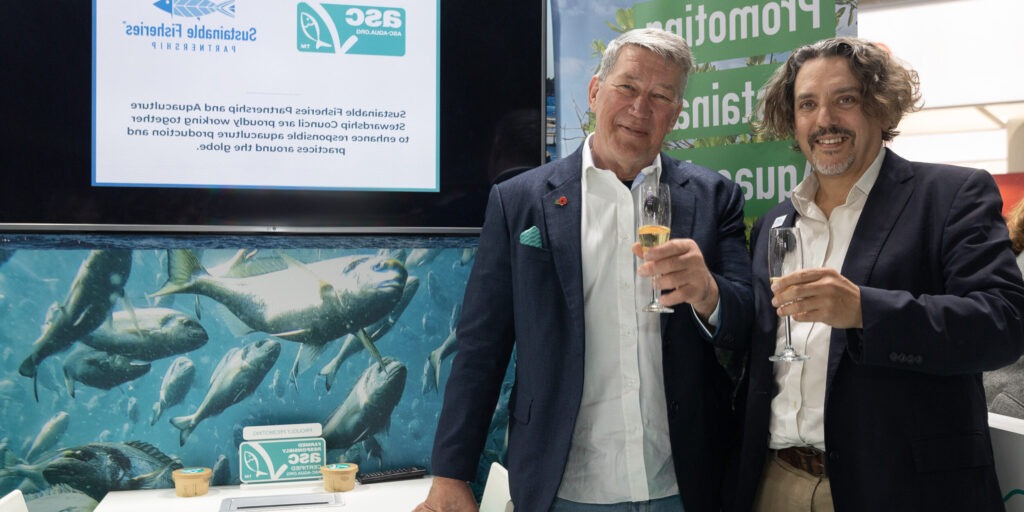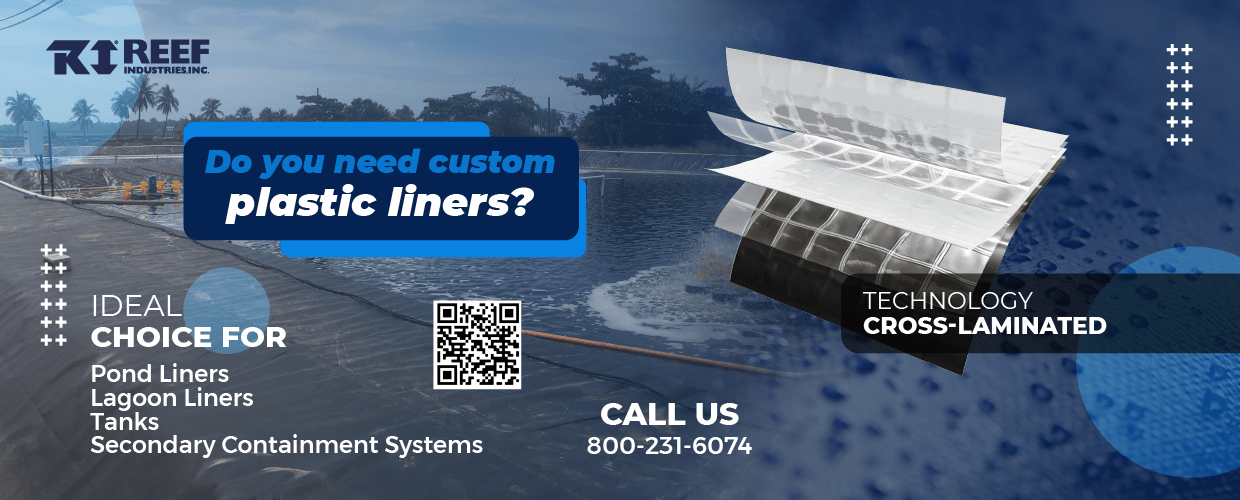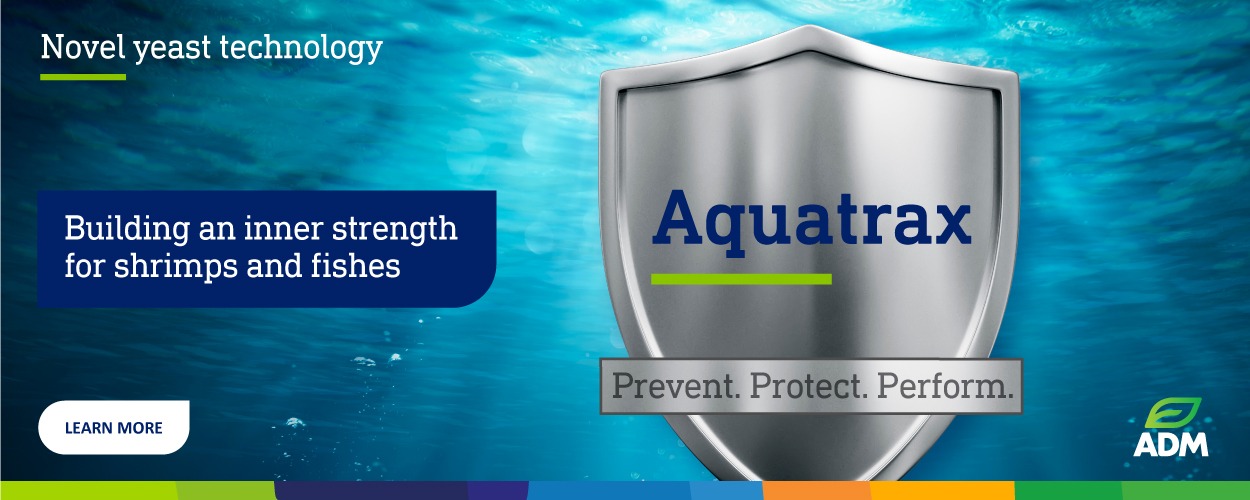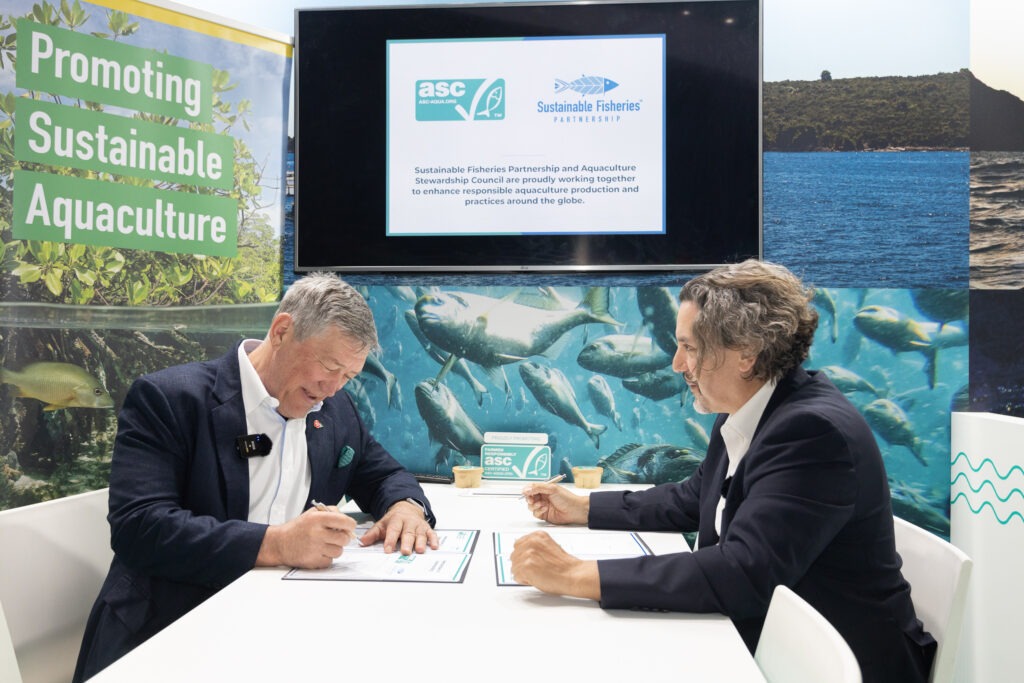The Aquaculture Stewardship Council (ASC) and Sustainable Fisheries Partnership (SFP) signed a Memorandum of Understanding (MoU) formalizing their common goal of increasing the sustainability of aquaculture production and practices around the globe. The signature was made on April 25 at Barcelona’s Seafood Expo Global. The ASC and SFP are currently building a work plan for the next steps of the collaboration.
The MoU builds on work by the ASC and SFP on data sharing and aligning information systems.
“We are excited to explore new ways of collaborating with SFP who we have a longstanding and successful history of partnership for many years. By working together on scaling our efforts in the aquaculture improvement space, enhancing the sustainability of the reduction fisheries sector based on ASC Feed Standard requirements and coordinating our market engagement efforts, we aim to leverage our shared work with farmers, feed suppliers and other stakeholders,” said Chris Ninnes, ASC CEO.
“Our collaboration is a powerful opportunity to increase sustainable aquaculture production,” said for his part SFP founder and CEO, Jim Cannon. “With the ASC, we can innovate and enhance the scope of aquaculture improvement projects so that more producers can improve practices, more government regulators can strengthen governance, and more buyers can find meaningful ways to engage and support improvements.”

Complementary approaches
ASC promotes responsible seafood farming by setting the standard for seafood farmed with care and operating a third-party certification model at farm level. Producers are checked by auditors on-site on their compliance with the ASC standard and can use the ASC label if they pass the audit. SFP maintains FishSource with aquaculture management status assessments to monitor and improve the sustainability of farmed seafood production at the landscape scale.
They believe that these complementary approaches can deliver more impact in collaboration and combination.
A key project in the works is ASC’s Improver Programme to help producers who cannot currently achieve certification improve their farming practices and performance and reach a level that meets certification requirements. ASC and SFP plan to develop a process designating stepwise improvements across at least four impact area modules (water quality, disease management, feed and effluent).
Together, the organisations will also look into developing a framework to monitor and track progress.
More proyects
ASC and SFP also intend to work together on increasing sustainability and reducing the ecological footprint of aquaculture feed ingredients and production. In collaboration with a broader suite of partners, the ASC and SFP aim to deliver an improvement framework for South American fisheries based on ASC Feed Standard requirements and aligned to the goals of the Global Roundtable on Marine Ingredients.
13 years
In 2010 was launched the Aquaculture Stewardship Council (ASC) as an impact-driven NGO. They partnered with the Dutch Sustainable Trade Initiative IDH and WWF Netherlands to make aquaculture more sustainable. ASC do this by setting strict standards for seafood and farms and deliver high assurance throughout the supply chain.
To drive our third-party certification and labelling program for seafood farming worldwide, we work with the environmental and scientific community and beyond. Together, they develop standards with other NGOs, academics, farmers, retailers and experts, and they keep developing more standards to meet changing market needs and demand.
ASC certified farms are independently assessed against every requirement in their species-specific ASC standard. Our system has been evaluated against ISEAL’s Codes of Good Practice, a globally-recognized framework for effective, credible sustainability systems. Playing to these codes, we’ve become the world’s leading farmed seafood certification program, from farm to fork.
In the case of SFP, is a United States (US) registered nonprofit that operates globally to rebuild depleted fish stocks and reduce the environmental and social impacts of fishing and fish farming. The organization works by engaging fishery stakeholders and seafood businesses throughout the supply chain to promote the sustainable production of seafood.











